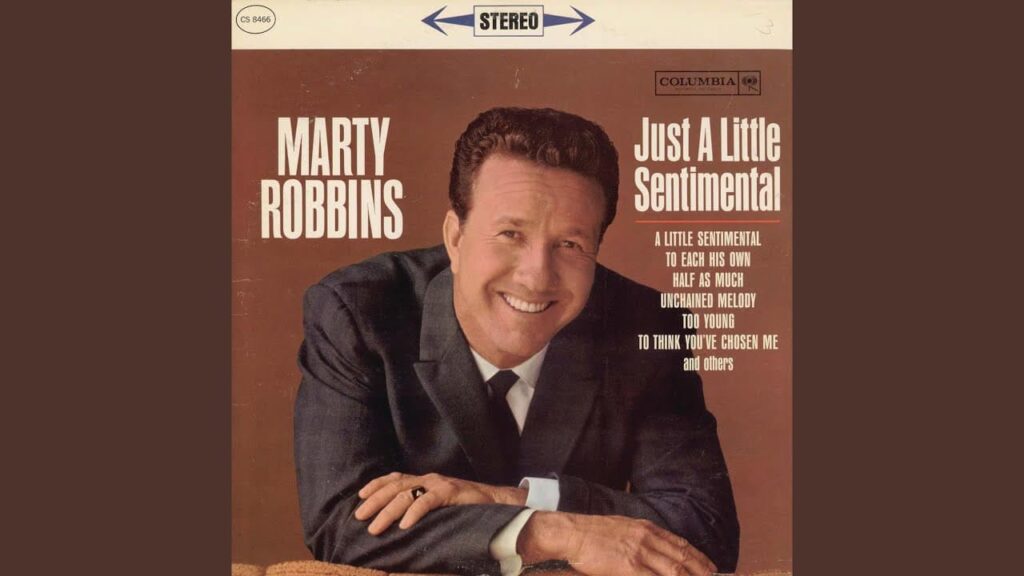
When the Heart is the Habit: A Ballad of Irrevocable Love
The simple, painful truth that breaking up is far easier said than done.
Gather ‘round, friends, and let’s turn the dial back to the mid-1950s, a time when country music was elegantly bridging the gap between the raw simplicity of honky-tonk and the smooth polish of the burgeoning Nashville Sound. There was one man, Marty Robbins, whose voice was a silken thread weaving through both styles, capable of both a lonely cowboy’s lament and a heartbroken crooner’s polished appeal. In 1956, he gave us a classic testament to stubborn, agonizing devotion: “I Can’t Quit (I’ve Gone Too Far).”
This song was a powerful B-side to one of Robbins’ major career breakthroughs. Released on August 6, 1956, the single featured “Singing the Blues” on the A-side. While the infectious swing of “Singing the Blues” rightfully soared to No. 1 on the Billboard Hot Country Singles chart (and even crossed over to No. 17 on the Pop chart), the quiet, aching honesty of “I Can’t Quit (I’ve Gone Too Far)” carved its own deep place in the hearts of listeners. Though it didn’t chart on its own merits, it rode the enormous popularity of its flip side, becoming one of those cherished two-for-one records that fans of Marty Robbins remember fondly. The two tracks perfectly encapsulated the dual nature of Robbins‘ early career: one, a buoyant, industry-crafted hit; the other, a self-penned, introspective ballad written by Marty Robbins himself that felt like a private, painful confession.
The story behind the song is, in essence, the story of any genuine, self-destructive heartache. In a decade when Marty Robbins was emerging as a prolific and gifted songwriter—a skill sometimes overshadowed by his versatility as a performer—“I Can’t Quit” is a shining example of his knack for cutting straight to the bone of a simple emotional dilemma. The song’s meaning is painfully universal and reflects a profound insight into the human condition: the narrator is fully aware that a relationship is toxic, damaging, or simply wrong, yet he is utterly powerless to leave. The title itself tells the whole story: “I Can’t Quit” because, emotionally, “I’ve Gone Too Far.” It’s the kind of love that turns into a habit, an addiction, where the pain of staying is less frightening than the terror of withdrawal.
Unlike his sweeping western epics like “El Paso,” this is a close-up, intimate scene. There are no galloping horses or gun battles; the conflict is entirely internal. The lyrics speak of the struggle to break free, comparing the loved one to a destructive force, a “poison in my veins.” But the voice is so gentle, so resigned, that it’s less a complaint and more a statement of fact—a quiet tragedy delivered in that rich, velvety baritone that could turn the most complex emotion into a crystal-clear, heartbreaking melody.
For those of us who remember buying that shellac single or hearing it played quietly in the last hour of a late-night radio show, “I Can’t Quit” remains a deeply nostalgic piece. It’s a sonic memory of an era where a B-side could hold just as much, if not more, emotional weight than the smash hit it was paired with. It speaks to the older reader who understands that life isn’t always about grand gestures; sometimes, it’s about the quiet acknowledgment of an unbreakable, irrational chain that only the heart forges. This unassuming track is a potent reminder that the deepest wounds are often the ones we inflict upon ourselves, all in the name of love.